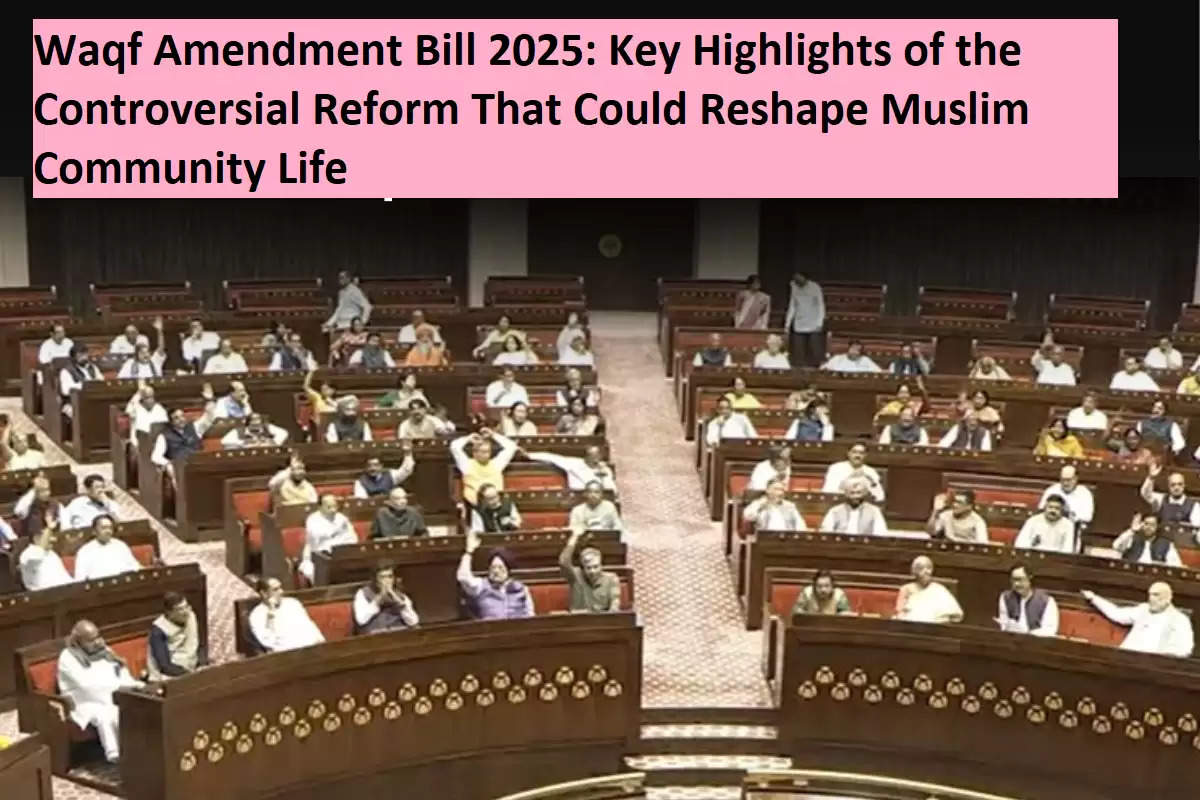Waqf Amendment Bill 2025: Key Highlights of the Controversial Reform That Could Reshape Muslim Community Life
- bySagar
- 05 Apr, 2025


The Waqf Amendment Bill 2025 has sparked a nationwide debate, cutting across political and community lines. While it has already cleared both houses of Parliament and is now awaiting the President’s signature, reactions have been swift and divided. Many Muslims are apprehensive about the bill’s implications, even as others see it as a necessary step toward greater accountability and transparency in managing Waqf properties.
Even if you’re not a part of the Muslim community, it's essential to understand how this bill could significantly impact the social and economic landscape of millions of Indian citizens.
What Is Waqf?
Waqf refers to a charitable endowment made under Islamic law, typically involving donation of property or land for religious or social welfare purposes. The donated asset becomes non-transferable and is meant to serve the public good, often through mosques, madrasas, or community welfare programs.
Why Has the Waqf Amendment Bill Caused Uproar?
The Waqf Amendment Bill 2025 has triggered political friction and community concern. Opposition parties like the Congress and AIMIM, including prominent leaders like Mohammed Javed and Asaduddin Owaisi, have already challenged the bill in the Supreme Court, calling it unconstitutional. Protests have been held in various parts of the country.
Despite the backlash, the Modi government maintains that the bill is designed to correct longstanding loopholes and prevent misuse of Waqf properties, many of which are reportedly under illegal occupation or are mismanaged.
Major Provisions and Their Impact
1. Crackdown on Illegal Occupation of Waqf Properties
The bill empowers authorities to take strong action against unauthorized occupants of Waqf land. Imam Sajid Rashid has welcomed this clause, stating that powerful individuals have long exploited valuable Waqf assets. Under the bill, such occupants may either face eviction or be required to pay fair-market rent. This aims to benefit underprivileged Muslims by redirecting resources back to the community.
2. Abolition of the “By-User” Clause
One of the most debated elements is the removal of the “by-user” provision, which previously allowed individuals using a property over time to claim ownership. Critics like Mohammed Faizi of the Jharkhand Sunni Waqf Board argue that many community members lack documentation, and this change could result in loss of legitimate Waqf assets. Supporters, however, claim it will help protect properties from being falsely claimed.
3. Mandatory Registration and Online Listing of Waqf Properties
To ensure transparency, the bill mandates that all Waqf properties be registered and made available in a centralized online database. This digital record-keeping is intended to prevent corruption, mismanagement, and unauthorized transfers. Public access to this information could also empower community members to report discrepancies or misuse.
4. Legal Recourse for Property Disputes
Previously, challenging the classification of a property as Waqf was legally difficult. The amended bill now opens the doors to revenue courts, civil courts, and even High Courts, allowing anyone with a legitimate concern to seek legal remedy. This ensures that decisions are not made unilaterally by Waqf boards without proper judicial oversight.
5. Safeguarding Women’s Inheritance Rights
One progressive aspect of the bill is its protection of women’s rights to inherit property. It prevents properties from being donated to Waqf in a way that sidesteps rightful female heirs, ensuring gender justice within property inheritance.
6. Eligibility Clause for Donors
To prevent potential misuse, the bill includes a provision stating that only individuals who have identified as Muslim for at least five years can legally create a Waqf. This is seen as a safeguard to ensure that endowments are made with sincere intent and within the community's religious framework.
Final Thoughts
The Waqf Amendment Bill 2025 is a landmark reform with far-reaching implications for India’s Muslim community. While critics fear overreach and loss of traditional rights, supporters view it as a long-overdue move to clean up the Waqf system and restore its original charitable purpose.
As the bill awaits the final nod from President Droupadi Murmu, the national conversation continues to heat up. Whether you're directly affected by the bill or simply a concerned citizen, it’s vital to stay informed about this pivotal moment in India’s legal and religious landscape.





